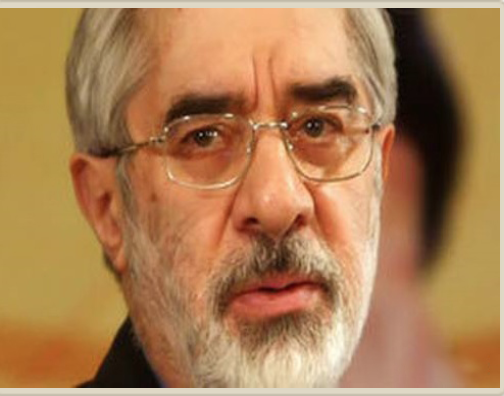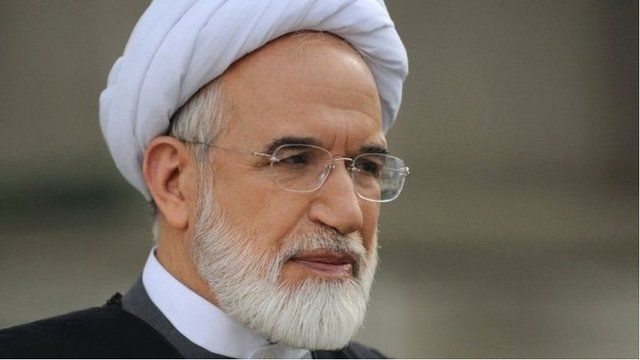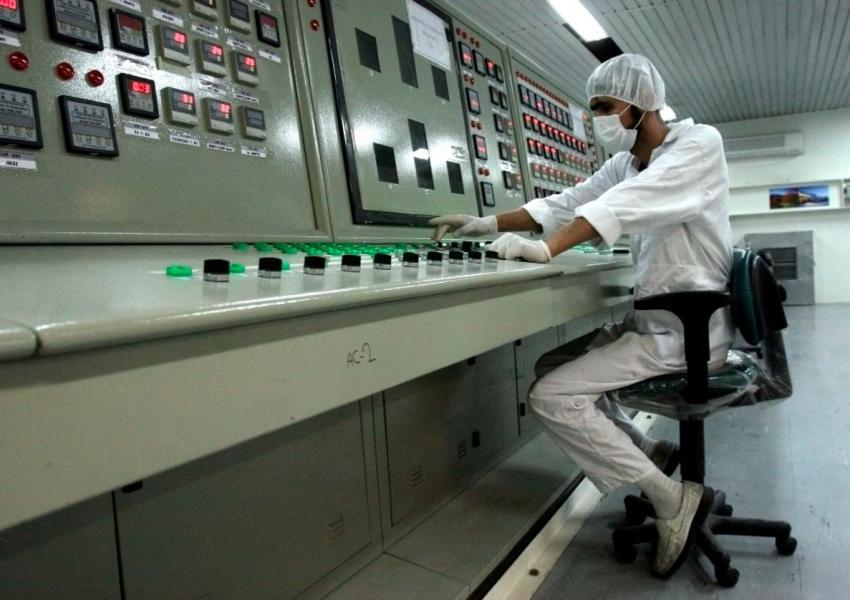
Social Problems; The Missing Link in Presidential Candidates’ Plans
The editorial of Setareh Sobh stresses that while social issues represent the main challenges ahead for the country, the presidential candidates have ignored these issues and have just focused on economic and political issues.
Social responsibility is one of the key concepts in developed countries where officials have strategic plans in this regard. But no such thing exists in Iran.
Even though Iran is on the verge of the presidential election, none of the candidates have brought up issues of social responsibility, social participation and cultural development. The second presidential debate which was held about cultural, social and political issues proved that these ideas and concepts are being neglected by the candidates.
It seems that what is important for these candidates is only political participation which will lead to their own election, and not social participation as an effective paradigm in sustainable development. The candidates’ views regarding the issue of people’s participation are superficial, based on their own self-interests.
This happens in countries where sustainable development and long-term plans are not the first priority and their approach is more towards gaining or preserving power. The truth is that social issues and particularly social participation and responsibility are the foundations of positive change and development in society. The more people’s social power is boosted, the more that society can have cultural and political development.
In the meantime, in politicized societies like Iran, everything is tainted with politics and social issues are buried under factional policies and interests. That is why Iranian society is facing a situation in which the politicians are not capable of understanding people’s real demands.
According to studies, out of 100 future challenges in Iran, 53 challenges are related to social issues. The first 10 challenges include the water crisis, unemployment, loss of hope for the future, social capital and public trust, social indifference, public morality, air pollution, social and psychological security, and citizens’ rights. None of these issues have been raised in the presidential candidates’ plans, and most of their plans center around economic and political issues.
In the meantime, what is threatening social security in the country is not just economic and political issues, but also social problems. The rise in the number of women as heads of households, criminal cases, addicts, the number of divorces, the decrease in marriages, etc. show that these issues cannot be ignored today.
Yet none of the presidential candidates have a plan for dealing with these social issues.
Impractical and Inflationary Promises by Presidential Candidates
The editorial of Tejarat, written by Jamshid Nafar, head of the Export Commission in the Chamber of Commerce, urges that the presidential candidates must stop making promises that they cannot fulfill.
“Three debates for the 13th presidential election were held. These candidates who are questioning the conditions in the country must be seriously warned and if necessary, those who give wrong statistics must be eliminated from the race.
The candidate who is going to be elected by the people must see the reality and be able to show it to the people. He must not paint a black picture of the reality or give promises that will not be fulfilled. One of these promises is about increasing cash subsidies. Increasing cash subsidies means increasing liquidity which will certainly result in uncontrollable inflation.
Paying a subsidy of 45,000 tomans could in the beginning help households to provide for themselves, but due to the increase in the amount of liquidity and inflation in recent years, the paid amount of subsidy cannot help people improve their standard of living.
These hollow promises show that the candidates do not have a correct understanding of the economic situation and are trying to gain people’s votes by chanting slogans and making false claims. That is not good for a country like Iran.
What is vital is that the election campaigns are held simultaneously with talks for reviving the JCPOA. Now that the entire world is watching Iran, each candidate blames the others for the existing problems, while these circumstances are the outcomes of the collective performance, and everybody is responsible for them.
Under these circumstances, instead of making any promises, the candidates must have a deep understanding of the country’s problems. During the Iran-Iraq war, world powers like France, Germany, and America backed Iraq, but there was a strong tie between the Iranian people and the establishment. But today domestic disputes have created many problems for the people. All those who are trying to fish in this muddy water are preparing the grounds for the enemies to take advantage of the situation.”
The Elected President Must Put Fresh Bread on People’s Tables!
The editorial of Aftab Yazd urges that whoever is elected as the next president must first and foremost deal with the issue of poverty and economic disparity.
The second presidential debate was held in the same manner as the first one. The large-scale problems of the country raised by the moderator and the candidates’ plans and programs were not interesting or creative. Different groups of people and even some of the candidates have objected to the way the debates were held.
As for economic mismanagement and confronting criminal managers, we must look at the destructive outputs of the management system within the country. The issue of poverty and growing economic disparity are so palpable within society and people’s tables are shrinking.
But the dire consequences of the issue of poverty were neglected in these debates. In these debates, it was not mentioned that many youths with higher education have to work in shops and companies for very little money. It was not mentioned how the increasing rate of divorce, unemployment and moral and social dysfunctions are aggrieving the people. It wasn’t mentioned that for years women, children and youths have been sitting by these tables without joy and happiness. It wasn’t mentioned that most of the people are no longer familiar with words like meat, protein, fruits and are absolutely devastated.
None of the questions put forward by the moderator in these debates were about rent-seekers and embezzlers. It wasn’t said that day by day the poor are becoming poorer and the affluent are becoming richer. This represents a great social catastrophe and the death of hope in society. The candidates enumerated different current problems, but they didn’t say what they have done to fight them in proportion with the responsibility that they have had. The candidates were not asked if this devastating economic war against Iran has had any impact on their families facing shortages of food, high prices of goods, poverty and hunger.
In his first hundred days’ report, the elected president must stand in front of the people and tell them what he has done for people’s tables. At that time, his words must put fresh bread on people’s tables, or else he has lost greatly.
Large Gap Between the Presidential Candidates and the People
The editorial of Aftab Yazd highlights that the presidential debates revealed the candidates’ lack of understanding about social problems.
These days, the Iranian people watch the presidential candidates’ debates on television, but they don’t see any accurate, significant plans for solving the country’s problems. The second debate was about cultural and social issues, yet none of the candidates addressed the problems that exist in society. Instead, they played the blame game with each other.
The debates have turned into a game, while many people watch these debates to find out how these candidates assess social problems and to see if they have an understanding of the current situation in Iran. Now, given the plans that they have offered so far, one can say that they have no knowledge of what is going on in society.
In fact, the presidential candidates talked about general issues and avoided dealing with social problems – particularly extreme poverty in society. The candidates have no plans for dealing with social problems, because if they had any, they should have proved their understanding of the current issues and problems in society, analyzed them, and then offered their solutions.
What is more, the debates showed the large gap between the candidates and the people. Because of this gap, the candidates are not able to see many existing problems. Currently, the most significant social problem is the huge economic disparity that exists between different groups of people, so the candidates must analyze this issue and announce their positions in this regard.
It seems that it is already too late to deal with social issues. So, how can the candidates resolve the issue of poverty and its related problems that people are grappling with?

House-arrested Leader of Green Movement Expresses Solidarity With Election Boycotters

Boycotting Iran’s imminent presidential election from inside and outside the country is entering a new phase according to a statement from the house-arrested leader of the 2009 Green Movement Mir Hossein Moussavi and a virtual meeting of prominent opposition figures.
In his statement, Moussavi – who has been under house arrest for the past 10 years – noted: “I will stand by those who are fed up with the engineered and humiliating elections; those who will not surrender to behind-the-curtain decisions for the country’s future.” He condemned the secret and stealthy decision making which would soon become a topic of discussion in households, bazaars and cyberspace.
Moussavi also stated that if the Guardian Council’s approbatory supervision continues, “what is called the Islamic Republic of Iran will become meaningless in the near future.”
Meanwhile, a number of prominent activists in Iran and abroad held a virtual meeting, calling for boycotting the elections. Among the participants were Reza Pahlavi son of the former Shah of Iran, and Hassan Shariatmadari, Secretary of the Iran Transition Council.
Pahlavi, referring to the spectrum of opposition figures in the meeting, said we are together despite our different ideas and this is what should happen in Iran one day.
Some of the participants from Iran included political activist Fatemeh Sepehri who had been imprisoned for signing a letter to Ali Khamenei, demanding his resignation and Mahboubeh Ramezani, the mother of a protester killed during the November 2019 demonstrations.
Sepehri remarked that 85 million Iranians have been taken hostage by Iran’s establishment and they will live in poverty and misery unless this government is overthrown.
Political dissident Mohammad Nourizad, who is currently imprisoned, sent a message to this meeting through his wife, saying those who go to the ballot boxes are actually taking part in the crimes of the Iranian government.
Rift Deepens Among “Reformists” Over Participating in the Presidential Election

With Iran’s presidential election just around the corner, “reformist” parties and figures have not yet reached a consensus over participating in the elections. Despite the fact that the “reformists” announced that they had no candidates for the election, a number of major “reformist” figures have said they would go to the polls.
Mehdi Karroubi, a well-known “reformist” who has been under house arrest for a decade, recently said he would participate in the presidential election. His son, Hossein Karroubi, quoted his father as saying that he would vote for Abdolnasser Hemmati: “Given that I know of Mr. Hemmati’s activities in the economic and executive sectors during the past years and am aware of his ability in running the country, I’ll vote for him.”
Mehdi Karroubi has also said the only way through which people can determine their destiny is through the ballot box, noted his son: “My father has asked people from all walks of life to vote for Hemmati to defend republicanism and the presidential institution.”
Karroubi’s support of Hemmati came in spite of the fact that Mir Hossein Moussavi and his wife Zahra Rahnavard, two prominent “reformists” who have been under house arrest along with Karroubi for a decade, have boycotted the election.
In addition to Karroubi, former MP Ali Motahari announced his advocacy for Abdolnasser Hemmati, asking people to vote for him for improving the economy and foreign policy as well as preventing restrictions on their freedoms.
Meanwhile, the latest polls in Iran predict an extremely low turnout in the country’s 13th presidential elections. The popular protests in 2017, 2018 and November 2019 which left thousands of people dead on the streets as well as the IRGC’s downing of a passenger plane were among the reasons contributing to this extensive boycott of the upcoming election.
Ahmadinejad: Highest Official in Charge of Confronting Israel in Intelligence Ministry Was a Spy Himself

In a recent controversial interview, former President Mahmoud Ahmadinejad has questioned and demeaned Iran’s Intelligence Ministry, saying the highest official responsible for confronting Israel in that ministry “was himself an Israeli spy.”
“Has this person in the Intelligence Ministry, who supported many operations in Iran, become an Israeli spy on his own without any connections? Has he done it all alone?” Ahmadinejad asked. He continued: “Clearly this is a network which should be annihilated across the country.”
Ahmadinejad pointed to the infiltration of Israel in the upper echelons of the Iranian political system, especially its intelligence and security bodies, when talking about the way documents were stolen from the Iranian Space Agency. He said they wrote a “scenario” to normalize this theft and say the safe had not been opened and no document was stolen “so that the espionage elements would remain protected and keep the line of infiltration.”
The killing of Mohsen Fakhrizadeh, a key nuclear scientist, was another issue which Ahmadinejad questioned: “The authorities took such contradictory positions; once the intelligence minister said he knew about its time and place but never said who was responsible, who failed and who collaborated.” He also mentioned the coerced confessions of prisoners in this regard, saying officials asked prisoners to accept responsibility for killing the nuclear scientists in exchange for their release; “they just wanted to hide the line of infiltration in Iran, so that people and top authorities would not know.”
Ahmadinejad remarked that the country’s intelligence institutions should be able to prevent such cases but instead the officials say: “we found out very soon and then announce a fake or unknown name, saying we killed him, or he left the country and afterwards close the case.”
Health Minister Announces Emergency Approval for Iranian Vaccine After FDA Says it Was Under Pressure to Authorize It

While the fifth wave of the coronavirus has started in the eastern and southeastern provinces, Health Minister Saeed Namaki announced that the domestically developed COVIran Barakat has been authorized and 15 million Iranians will be vaccinated by the end of next month. Namaki noted that two more new vaccines called Razi and Fakhra would be developed in the country in the near future.
This announcement came after the head of the Iranian Food and Drug Administration (FDA) talked about “many pressures for issuing authorization for inoculating people with domestic vaccines.” Mohammad Reza Shanehsaz had previously said that until scientific research regarding the vaccine has been completed, the Health Ministry would not authorize it for public use.
The COVIran Barakat vaccine is developed and distributed by the Executive Headquarters of Imam Khomeini’s Order – the most important economic institution related to the supreme leader’s office.
It should also be mentioned that a number of officials have made statements about the possibility of replacing foreign vaccines with Iranian ones for the second doses of vaccinations. So far, China’s Sinopharm and the Russian Sputnik V vaccines have been used in Iran. However, some people have been deprived of the second dose of their vaccination due to vaccine shortages.
Health Minister Saeed Namaki said Russia was supposed to send 60 million doses of its vaccine to Iran, but not even one million has been received as yet. Likewise, China has only sent 4 million or 5 million of the 20 million vaccines promised to be given to Iran.
The coronavirus variants, meanwhile, have spread in provinces such as Bushehr, Hormozgan, Sistan and Balochistan, Kermanshah and Khuzestan, among others. “The increasing statistics indicates the beginning of the fifth wave,” according to a member of the coronavirus taskforce.
